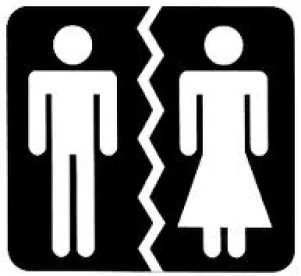Many people contemplating divorce do not realize that if they are unable to reach a settlement, the result is a full trial before a judge of the Superior Court of New Jersey.
It is critical to understand what occurs during a divorce trial – and what does not occur – and to be prepared.
First, a trial is not is not like a television drama or reality show. It is a highly structured event, subject to state laws and local rules. Witnesses testify and documents such as financial statements, appraisals, and other records are entered into evidence as exhibits, subject to the New Jersey Rules of Evidence. Not all evidence or testimony is admissible as evidence at trial. The most common example is hearsay testimony; that is, testimony concerning a statement made outside of court that is being offered for the truth of the statement. For example, a mother may want to testify about something her daughter told her about her father. Although there are a variety of exceptions to the hearsay rule which may allow hearsay testimony to be admitted, the judge will adhere to the Rules of Evidence in making that determination. If the judge decides that a statement is hearsay, and no exception applies, he or she may not admit it into evidence or to allow you to refer to it at trial.
Secondly, it is an understandable misconception on the part of divorce litigants to believe that their spouse’s infidelity or other wrongdoing, will impact the outcome of their divorce case. However, New Jersey law is clear that except in egregious circumstances, marital fault is not a factor in decisions relating to alimony, child support, and division of marital assets. Therefore, the courtroom is not a soapbox to air one’s grievances. Testimony and exhibits concerning fault may be deemed irrelevant as to certain issues. It should be added that in custody cases, fault may be considered but only to the extent that it bears upon parental fitness.
Finally, in a divorce trial the judge decides what the facts are, as opposed to a jury. The judge then applies his or her factual findings to the law to make decisions on the issues in the case. The credibility of the parties and witnesses can factor into this decision-making process. Often there are diverging viewpoints about events which occurred in the past, as well as the current situation. A judge faced with varying and possibly conflicting accounts of parties and witnesses must make factual findings in order to decide the issues. A judge will base his factual findings in part on credibility determinations – that is, which party appears more believable and offers the more believable version of the facts presented. The judge can form a favorable (or unfavorable) impression of a party or witness based upon conduct in the courtroom, and may consider conduct aside from what is observed while the party or witness is on the witness stand. The judge is given wide latitude in determining a person’s credibility and demeanor while testifying, which may prove significant.
In conclusion, a divorce trial is serious business. Maintain your composure at all times in the courtroom. Use an attorney who has trial experience and listen to your lawyer. Testify truthfully and accurately, and understand what the judge can and cannot take into consideration when rendering his or her decision. Most of all, be prepared before entering the courtroom.



 />i
/>i

